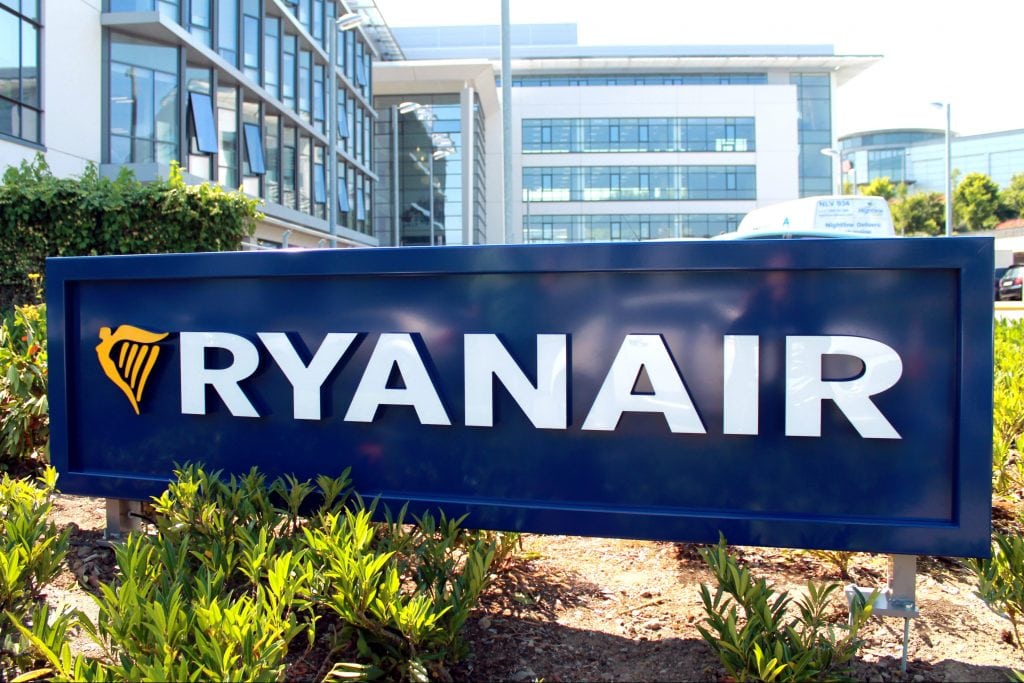Skift Take
Behind the usual Ryanair bluster there usually lurks a sensible business idea. If the airline offers a better accommodation product to customers, then that should persuade some to stay away from Booking.com.
Ryanair might have ambitions to become the Amazon of travel, but in reality its non-flight offerings are still on the modest side.
Over the last couple of years, the airline has ventured outside its comfort zone with moves into car hire, vacation packages, and accommodations. Ryanair appears to be taking that last sector to a new level now.
In November, the company updated the look and feel of the Ryanair Rooms website, bringing the user experience more into line with other hotel players. It followed this up with a new scheme giving 10 percent travel credit to customers who booked certain hotels. Now Ryanair is planning to market the brand on its own, with a new campaign [embedded below] that launched Monday.
“You’ll see a TV campaign from Ryanair Rooms in the UK and you’ll see press ads, print ads, radio ads,” said Ryanair Chief Marketing Officer Kenny Jacobs. “So that would be our first non-flights advertising campaign to go along with the launch of the new website and app and the launch travel credits.”
Direct Pitch
It’s a bold move, but perhaps even more intriguing is Ryanair’s desire to contract with hotels directly.
Since launching Ryanair Rooms in 2016, the company has used a variety of suppliers including Expedia’s Hotels.com and Cologne-based HRS. The idea now is to supplement these feeds with other properties.
To aid participation, the airline will try to convince owners and operators to “go direct” and put their inventory onto Ryanair’s extranet supply channel.
While Ryanair did not give any exact detail on commission levels, executives did say they would pass on a chunk to customers in the form of travel credit.
Ryanair also pledged not to bid on brand names or keywords, a practice that often infuriates hotels.
The pitch to hoteliers will be that Ryanair is not only cheaper but that it will offer up “better- qualified customers” because the people booking are more than likely to have already bought their flights to a specific destination.
“We’ll obviously be putting ourselves out there as the cheaper, better alternative in terms of the commission,” Jacobs said. “We’ve said to the market that we’re happy to invest most, if not all, of the commission we’ve earned in driving traffic.”
While this might seem like an attempt to take on Booking.com and Expedia, Ryanair’s goals are much more modest. Its website gets around 50 million monthly visits and the idea is to earn more money from existing customers, not necessarily to steal market share.
“We’re not trying to get U.S. customers booking accommodation in South America, even though the platform allows it; this is really just about getting the typical Ryanair customer heading to the sun, heading on a city break,” said Jacobs.
Can Ryanair Succeed?
Becoming the Amazon of travel doesn’t really square with Ryanair’s prudent ambitions. (Ironically, Amazon’s own foray into selling travel ended in failure.)
But perhaps this is the correct approach. Even though Ryanair is the world’s most visited airline website, Booking.com still beats it comfortably in terms of traffic.
In recent years, the major hotel companies have tried to wean themselves off the likes of Expedia and Booking.com. Usually this has taken the form of pushing the direct channel, but a third party with the scale of Ryanair would make an interesting option.
“For hotels, it depends on the terms and conditions that Ryanair will lay down on the commission level. So for Booking.com, for example, or any OTA [online travel agency] it will typically be between 15 and 20 percent commission, so if Ryanair goes along the same route, then hotels will probably be quite open to it,” said Jutta Moore, a revenue management consultant at Moore Hotel Consulting.
Along with the financial element, Moore said it is also crucial for Ryanair to have the right technology in place. In the past, hotels may have added their accommodation directly on to each individual online travel agency extranet. Nowadays, however, the trend is to use a channel manager like TravelClick or Avvio.
“It all depends on the connectivity,” said Moore. “If they have already gone in and developed a connectivity to some of the major channel managers so that it’s actually easy for hotels to connect, then it could be fairly straightforward.”
She later added: “If it’s a matter of working on allocations or working manually where hotels will need to enter into Ryanair’s extranet in order to maintain availability and rates, then it would really be an uphill struggle.”
Ryanair confirmed that it is “currently integrating with multiple channel managers and will soon release an [application programming interface] for all channel managers to work with us.“
Notwithstanding the technological difficulties, it seems Ryanair’s modest approach is at least a sensible one.
“Their idea of passing on commission as credits to rebook their flight is great,” said Dori Stein, CEO of hotel technology company Fornova. “On the basis that their typical customer is highly price-sensitive, this will appeal and make their service more sticky to their core client base.”
Said Stein: “They may have an opportunity here to become more sticky and add value to their core price-sensitive client base, specifically for Europe. But this will be far from taking on giants like Booking and Expedia who are likely to continue dominating this space.”
[youtube https://www.youtube.com/watch?v=Z80U-DfUPGk]
The Daily Newsletter
Our daily coverage of the global travel industry. Written by editors and analysts from across Skift’s brands.
Have a confidential tip for Skift? Get in touch
Tags: airlines, booking.com, hotels, low-cost carriers, online travel agencies, ryanair
Photo credit: Ryanair’s Dublin headquarters. The airline is making a much bigger push into the accommodations market. Ryanair
